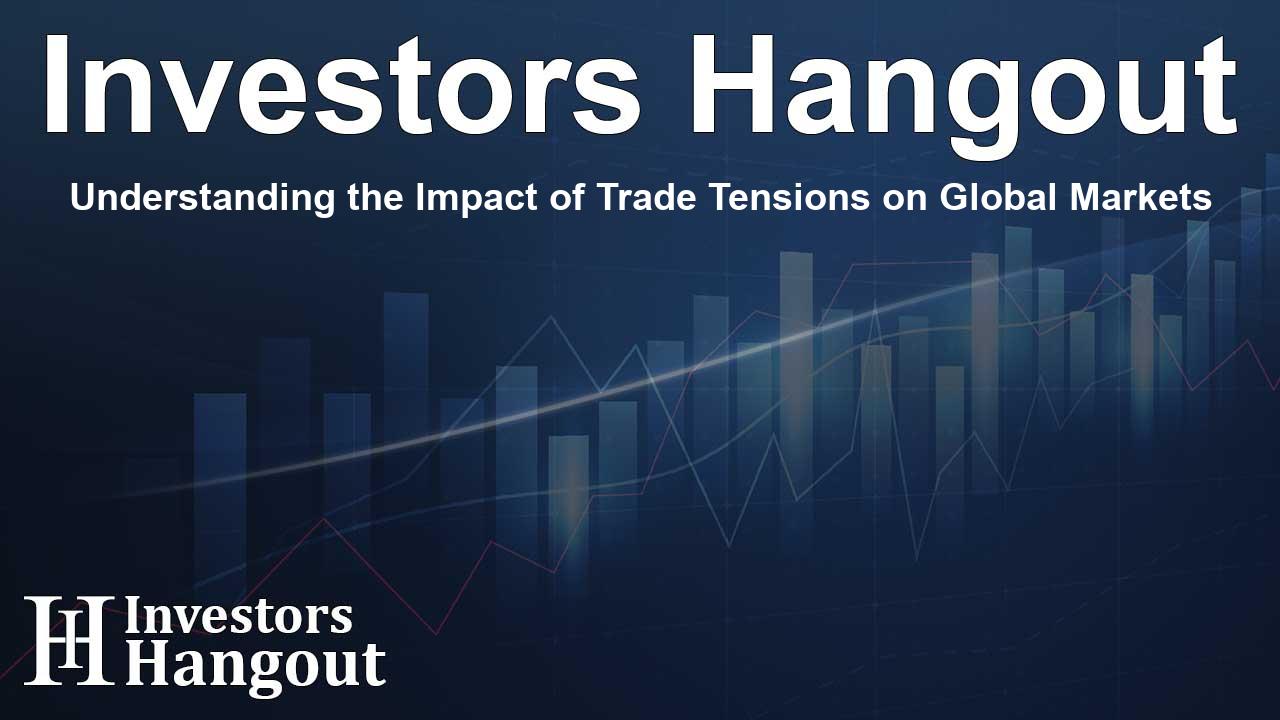Understanding the Impact of Trade Tensions on Global Markets

Gold Prices Face Pressures Amid Economic Shifts
Gold prices have experienced a decline of 0.36% recently as the value of the US dollar has shown consistent gains for six trading sessions. This trend comes as concerns about international trade policies and inflation rates continue to loom in the background, influencing trader sentiments.
With tensions rising due to new tariff implementations announced by US leadership, there is a palpable sense of anxiety regarding trade relationships. The tariffs, affecting numerous countries including significant partners, may precipitate changes in trade flows and inflation expectations. As market participants prepare for potentially tumultuous economic conditions, the approach to trading in commodities such as gold becomes particularly critical.
The trading dynamics of gold, represented as XAU/USD, have seen fluctuating trends, especially during Asian and early European trading sessions. Upcoming data releases, particularly the Consumer Price Index (CPI) report, are expected to further shape market volatility. A strong inflation figure could exert downward pressure on gold, while signs of moderated inflation may boost its price in response.
Currency Trends Amid Economic Indicators
The euro has seen substantial pressure, remaining under the 1.16800 mark. This drop is notable as traders adopt a careful stance ahead of anticipated economic data releases, particularly those related to US inflation. Market participants are eager to decipher how the measures on tariffs may affect consumer prices and the broader economic landscape.
Jerome Powell, the Federal Reserve Chair, has suggested that inflation might rise due to tariff-induced pressures. This development suggests the possibility of delayed interest rate cuts, which could impact the value of the dollar. Consequently, investors are positioning themselves against the backdrop of these policy changes, leading to heightened demand for the dollar in times of global uncertainty.
As negotiations with international partners continue, the outlook remains cautious. The implications of these trade discussions could have lasting effects on inflation and monetary policies, emphasizing the importance of understanding the interplay between financial systems across different regions.
Impact of Monetary Policy on the British Pound
The British pound has also felt the effects of global economic trends, trading around the 1.34900 mark. This position is reflective of market responses to insights provided by the Bank of England's (BoE) leadership regarding potential monetary policy adjustments. The BoE's focus on economic strength and inflation espouses a cautious yet responsive approach to interest rate decisions.
As BoE Governor Andrew Bailey has indicated that there may be a need for further rate cuts, traders are alert to upcoming labor market and inflation reports. These upcoming releases will offer critical information about economic conditions that BoE policymakers are likely to factor into their future rate decisions.
Additionally, shifting trade dynamics favor the UK as potential trade agreements with the US may counterbalance the challenges faced from EU tariffs. This could bolster foreign investments and redirect trade flows aimed at fostering a more robust economic environment.
The Bigger Picture: Navigating Global Economic Uncertainty
The complexity of the current economic environment illustrates that market participants must stay informed about evolving policies and their global implications. The interaction between tariffs, inflation, and interest rates creates a multifaceted landscape that requires careful navigation.
With ongoing discussions about tariffs and monetary policies, gold and currency valuations are likely to remain volatile. Investors and traders must adapt strategies based on real-time data and market positioning, remaining vigilant to shifts that may arise from policy changes. Through understanding these interactions, stakeholders can better position themselves in the face of uncertainty, leveraging opportunities that arise.
Frequently Asked Questions
What factors are currently influencing gold prices?
Gold prices are being influenced by the strength of the US dollar, ongoing trade tensions, and expectations around inflation data.
How do trade tariffs affect currency valuations?
Trade tariffs can alter currency valuations by shifting investor confidence and causing fluctuations in trade balances, which affect demand for currencies.
What is the significance of the Consumer Price Index?
The Consumer Price Index (CPI) is important as it provides insights into inflation trends, influencing monetary policy and market movements.
How might interest rate policies impact the British pound?
Interest rate policies can significantly affect the British pound's strength or weakness, as changes in rates influence investor behavior and economic sentiment.
What should investors watch for in economic reports?
Investors should closely monitor labor market trends, inflation reports, and any announcements from central banks regarding monetary policy changes.
About The Author
Contact Riley Hayes privately here. Or send an email with ATTN: Riley Hayes as the subject to contact@investorshangout.com.
About Investors Hangout
Investors Hangout is a leading online stock forum for financial discussion and learning, offering a wide range of free tools and resources. It draws in traders of all levels, who exchange market knowledge, investigate trading tactics, and keep an eye on industry developments in real time. Featuring financial articles, stock message boards, quotes, charts, company profiles, and live news updates. Through cooperative learning and a wealth of informational resources, it helps users from novices creating their first portfolios to experts honing their techniques. Join Investors Hangout today: https://investorshangout.com/
The content of this article is based on factual, publicly available information and does not represent legal, financial, or investment advice. Investors Hangout does not offer financial advice, and the author is not a licensed financial advisor. Consult a qualified advisor before making any financial or investment decisions based on this article. This article should not be considered advice to purchase, sell, or hold any securities or other investments. If any of the material provided here is inaccurate, please contact us for corrections.
